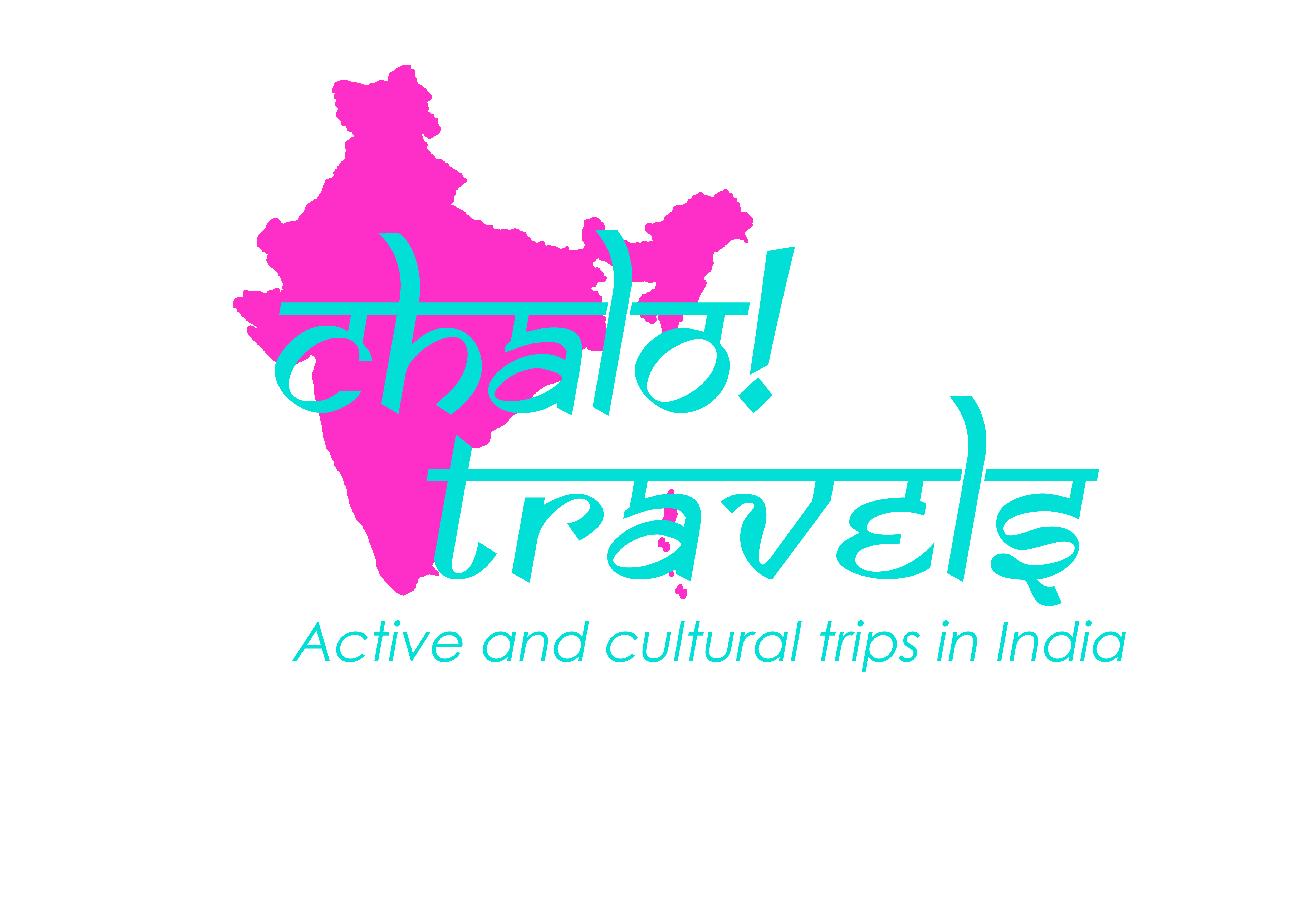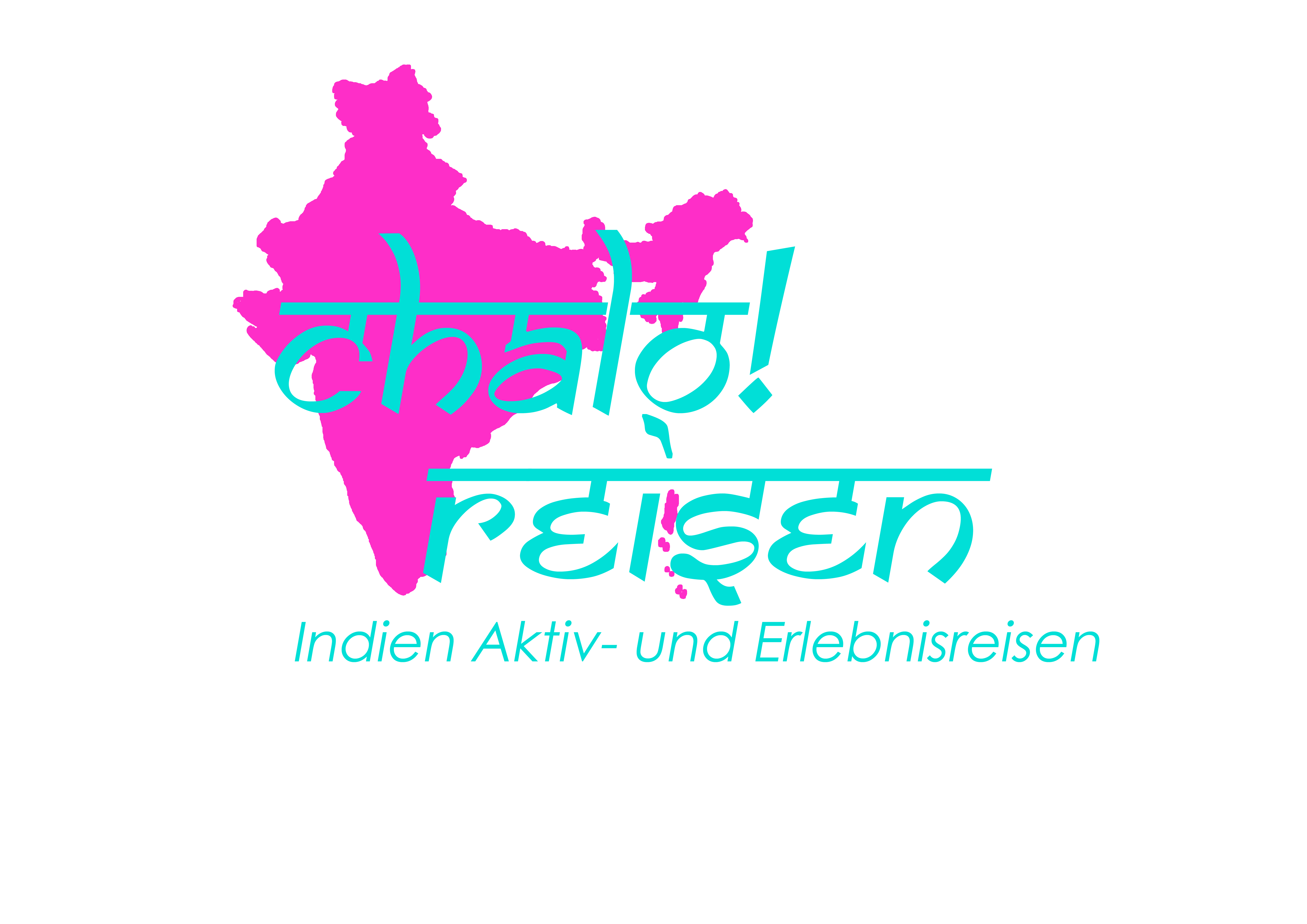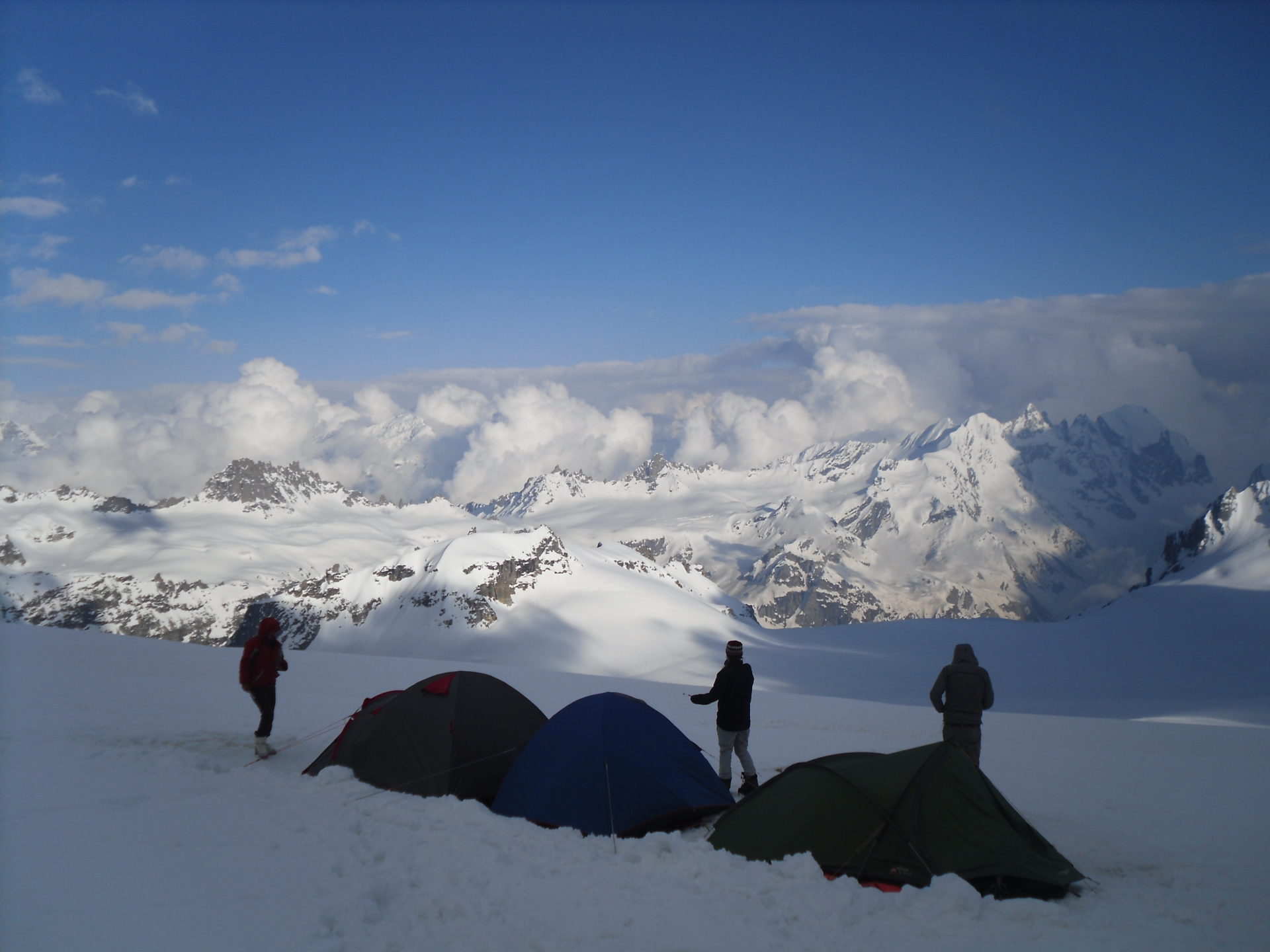- Sport & Abenteuer Reisen
- Klettern & Expeditionen
Overview
During the expedition we will trek through the Duangon Valley, always along the river of the same name. The first technical section will be from Basecamp via Duangon Pass and then continue up to the summit. From the summit we have a unique view of the Indarasan (6221 m), the highest mountain in this chain, as well as countless mountains of the valleys of Lahaul and Spiti.
Program
Day 1 Arrival in Delhi, transfer to hotel and onward journey to Manali in the afternoon
We pick you up from the airport and bring you to your hotel, After a breakfast and some peace and rest, we explore Delhi. In the afternoon the journey continues: With the Volvo bus (air-conditioned) we drive 14 hours to Manali overnight. (B/-/-)
Day 2 Manali (2050 m), presentation of the team, shopping, controlling and distributing equipment
We reach Manali and check into the hotel. After getting to know the whole team, we will use the day to make final preparations. We conclude the evening with a dinner with the entire expedition team. Overnight stay at the hotel (B/-/D)
Day 3 Manali to Khanol by Jeep/ Khanol to Chikka (3063 m) Trek 2 hours
Let’s go: a two-hour jeep tour takes us up to our starting point Khanol. The backpacks are ready and a short trek takes us to the beautiful camp in Chikka. There is a holy Shiva temple here. Overnight in a tent (B/L/D)
Day 4 Chikka to Seri (3843 m) Trek 4/5 hours
We trek around the Duangon River first through green forests and then over flowery meadows to our camp. Overnight in a tent (B/L/D)
Day 5 Seri to Base Camp (4353 m) Trek 5 hours
Steep uphill goes to the base camp near the Chandratal lake. In the months of May and June there will still be a lot of snow here! Overnight in a tent (B/L/D)
Day 6 Rest day, setting of equipment, simple mountaineering theory
Today we use the day to get used to the altitude and test our equipment. For the beginners among us, we will practice walking with crampons, putting on the straps and a few mountaineering knots! Overnight in a tent (B/L/D)
Day 7 Base Camp to the summit camp (5465 m) Luggage transport
today we have a “loadferry” day. We transport some of the luggage, such as food and equipment, up to the summit camp.
It goes over the Duangon Pass, a steep ascent where we attach ropes and use our crampons. We will descend back to Base Camp to spend another night acclimatizing. Overnight in a tent (B/L/D)
Day 8 Construction of the Summit Camp
Today we finally go up to the summit camp. We will stay at 5465 m. From here we have a great view of the surrounding mountains! Overnight in a tent (B/L/D)
Day 9 Summit ascent (6001 m) back to Base camp
A long and very special day to the summit of Deo Tibba! We start early at 3 o’clock in the dark and will return to the base camp in the afternoon. Overnight in a tent (B/L/D)
Day 10 Basecamp to Chikka
We will dismantle the base camp and go on the descent to Chikka. During the descent we will consciously notice the scents of grasses and trees, the birdsong and the colors of the flowers. Overnight in a tent (B/L/D)
Day 11 Chikka to Khanol and continue by jeep back to Manali
Today we return to civilization. What a feeling to return successfully from a six-thousand meter peak! We conclude the adventure with a dinner together! Overnight stay at the hotel (B/L/D)
Day 12/13 Extra days in case of bad weather or acclimatization
We have so-called “buffer days” because we always need perfect weather for the ascent of Deo Tibba. It is also important that we adjust sensibly to the altitude, that can take different lengths depending on the person, so that we can stay in the camp for a day longer or train climbing techniques. Overnight in a tent (B/L/D)
Day 14 Departure from Manali by Volvo Bus (14 hours overnight)
In the afternoon we take the Volvo bus back to Delhi. Overnight stay on bus (B/-/-)
Day 15 Transfer to the airport in the morning, departure to your home
In the morning we reach Delhi and taken first to the hotel and later to the airport. (/-/-)
Services
- Trained Mountain Guide
- Cook and helper to Base Camp
- Load horses or carriers
- Accommodation in 2-3 man tents
- Kitchen tent to Base Camp
- Full catering during the expedition
- complete transportation
- complete expedition equipment
- Transfer from/to Airport
- Delhi-Manali/Manali-Delhi Volvo Bus
- 2 x Hotel Delhi, 2-4 x Hotel Manali with breakfast (double room)
- Sightseeing Delhi
International flightVisaUnmentioned meals and drinksIMF PermitTipPersonal trekking equipment (clothing, backpack, headlamp, trekking shoes, gloves etc.)
Highlights
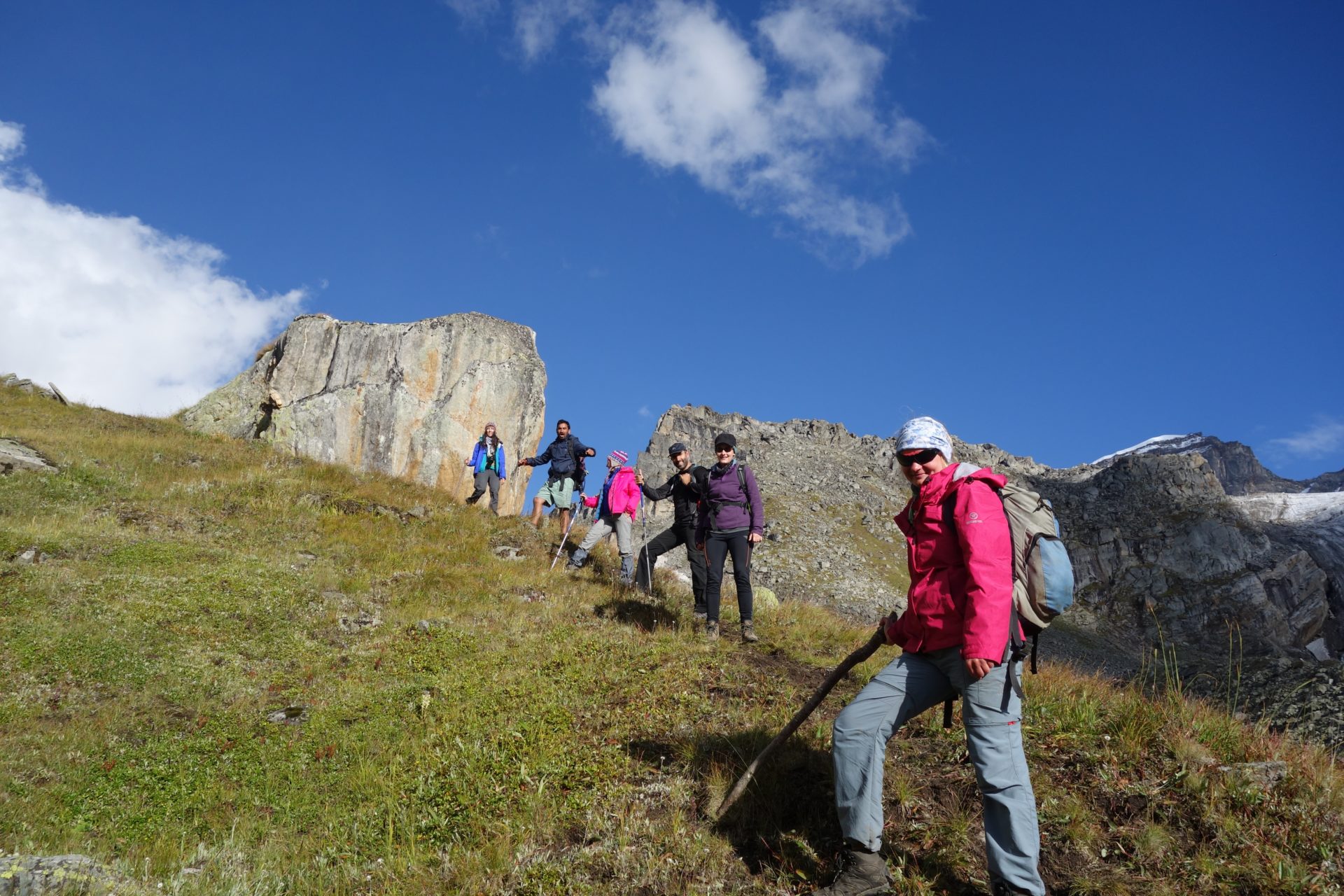
Deo Tibba Expedition 
Deo Tibba Expedition 
Deo Tibba Expedition 
Deo Tibba Expedition 
Deo Tibba Expedition 
Deo Tibba Expedition 
in the tent 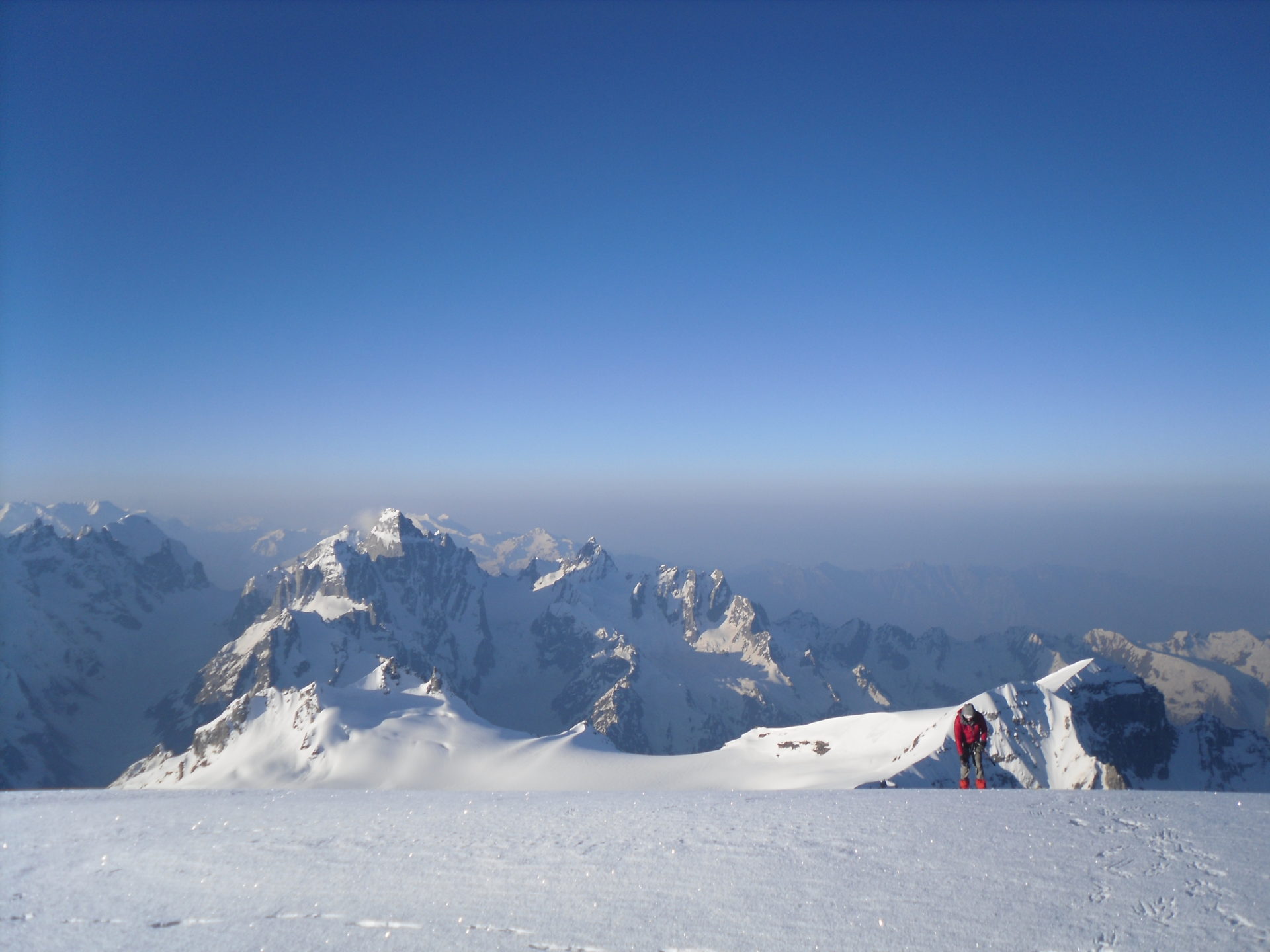
Deo Tibba Expedition 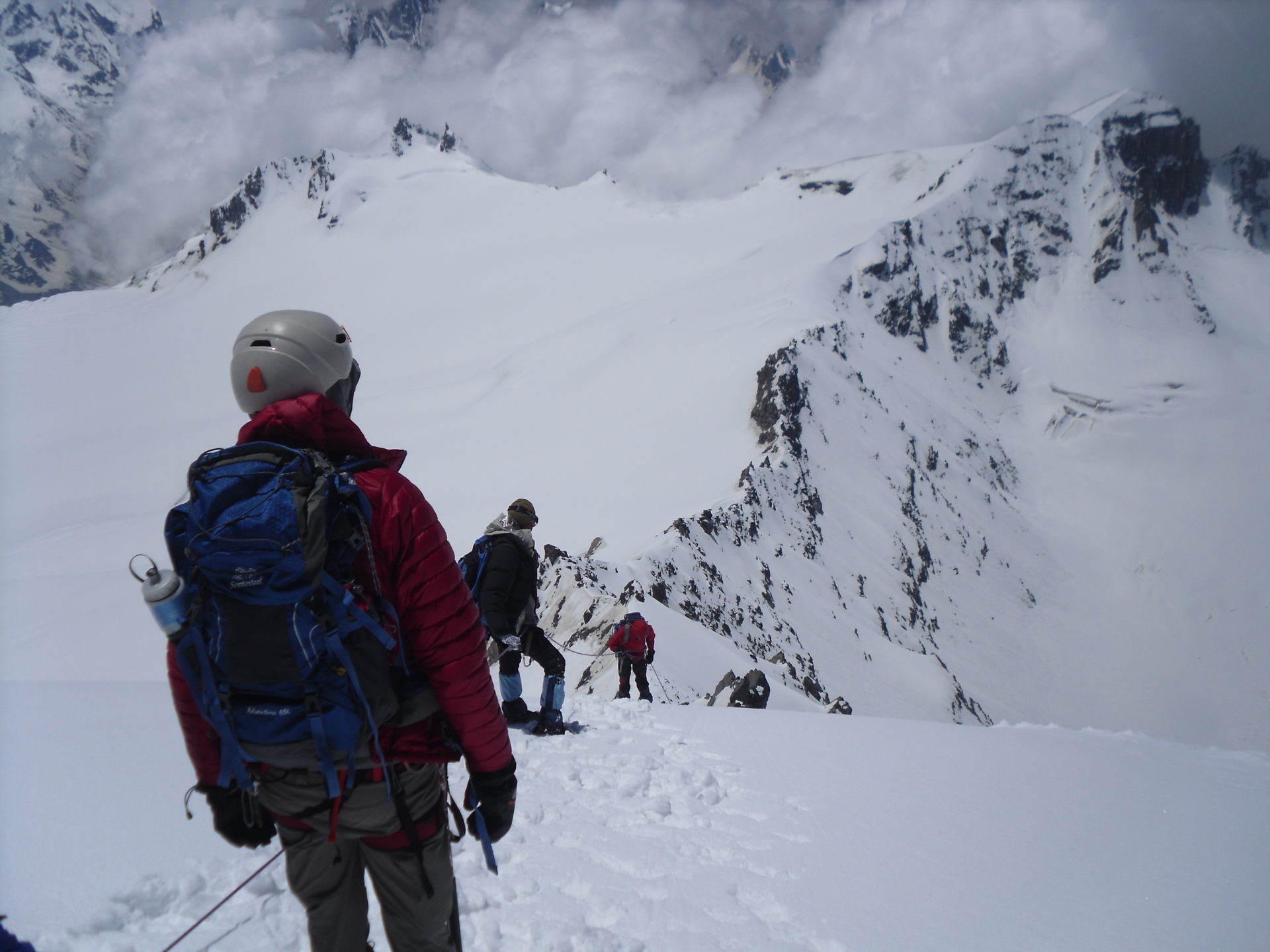
Deo Tibba Expedition- roped up 
peak 
ascent to the peak 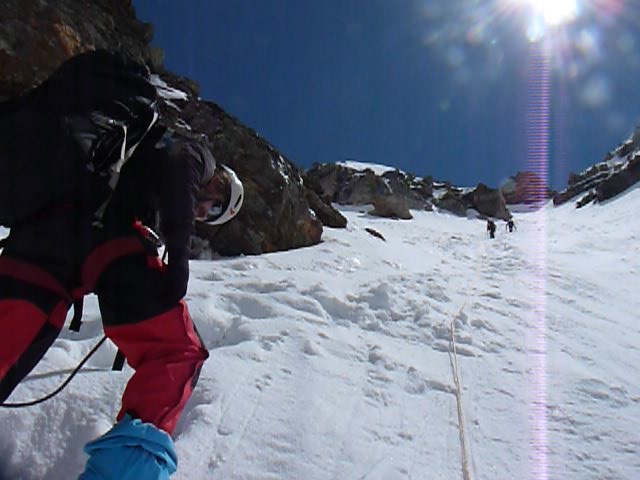
up to the Duangan Col/Pass 
Advanced Basecamp 
kitchen tent 
Deo Tibba Expedition 
2 days trek to the basecamp 
Advanceed Basecamp 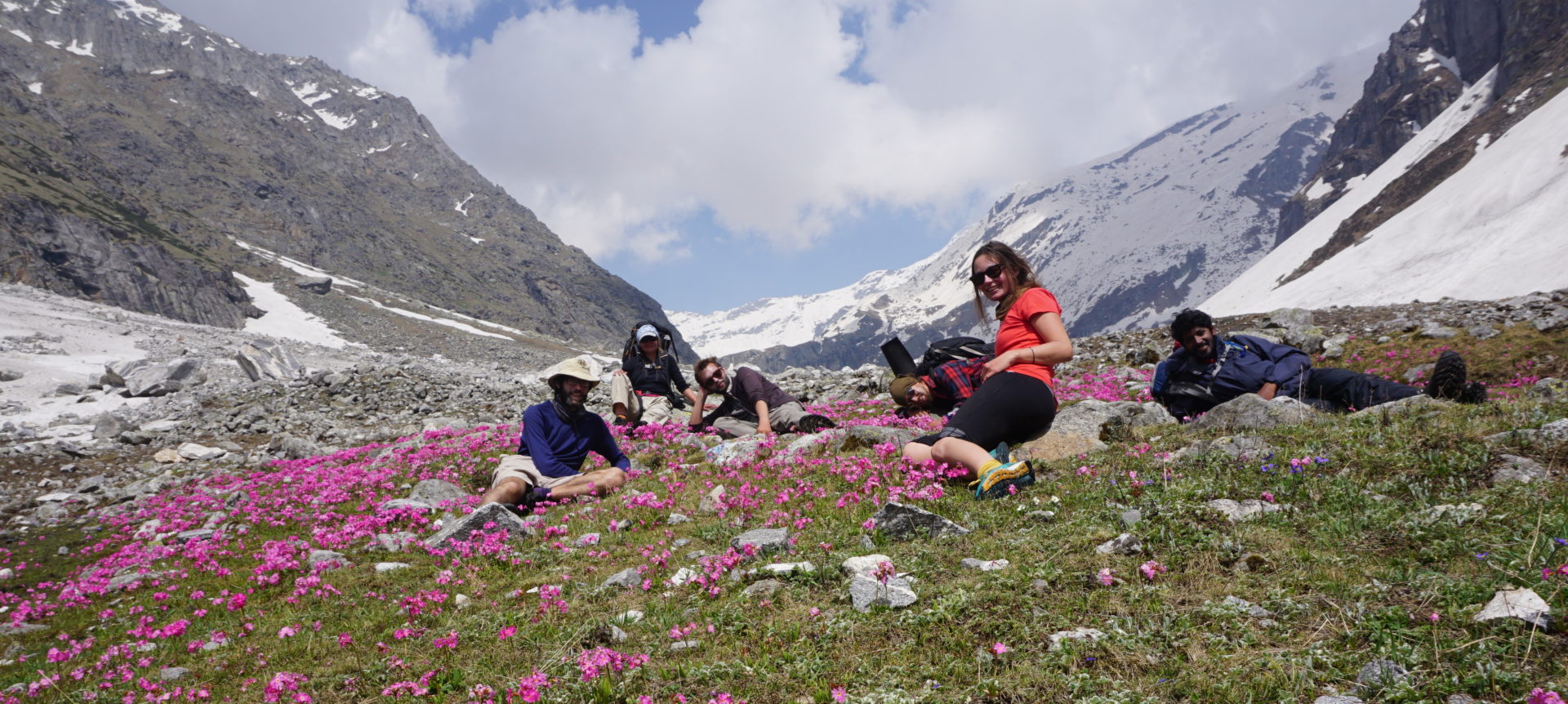
Deo Tibba Expedition 
summit day 
Deo Tibba Expedition
Prices and Dates
The expedition is possible from April to November as a private tour
1 participant from 2699 € per person
2 participants from 2249 € per person
3-4 participants from 2099 € per person
5-6 participants from 1849 € per person
7-12 participants 1799 € per person
100 € single room supplement for room, no one-man tent possible
Tour Info
Requirements
Mountaineering experiences are not a prerequisite, but they make sense. If you have never climbed a mountain before, you can extend the tour so that we plan extra days to practice with the equipment. You should be physically and mentally fit for the ascent. The ascent is at your own risk. A summit ascent cannot be guaranteed.
Information about our Expeditions in the Indian Himalaya with Chalo! Travels
- Mountain guide and team
On all our expeditions we have at least two trained local mountain guides with us. Our mountain guides have all completed all Indian mountaineering training and regularly lead expeditions and mountaineering courses. They have climbed the peaks several times and know the terrain excellently. All our mountain guides speak English.
In addition, there is a local team that will accompany us at least until the base camp. Which includes cook, helpers, horsemen with horses or Nepalese carriers, depending on the type of trek up to the base camp.
All our team members have been working with us for years, are very friendly, professional and always striving to give our guests a great experience and fulfill their wishes. Their English is rather mediocre or non-existent, but this is not necessarily a hindrance to communicating with them.
2. Summit
The summits have a different level of requirements from simple to difficult. Even with simple ascents of the summit, certain climbing techniques are required, as well as the use of equipment. On each of our tours we include days of practice to learn or repeat techniques and practice using crampons, ice picks, gaiters and using the rope. Thus, even inexperienced participants can participate in a summit expedition with a more difficult degree. The peaks are between 5000 and 6500 meters high.
The first days of the expeditions to the base camp are more like trekking days. The daily routes are between five and eight hours long (with breaks) and an average increase of around 500-800 metres of altitude is completed.
In between, rivers may have to be crossed. The paths are partly well developed, but sometimes also almost non-existent. On our trekking routes there are hardly any villages between, so we will take enough food for the whole tour.
From the base camp we will reduce our team and only travel with our guests and the mountain guides. While the rest of the team will stay in base camp. Meals will be easier, the daily routes can be up to 12 hours and especially on the day of the summit we start in the early morning hours around 2:00-3:00. From Base camp we will be on the road with all the equipment and depending on the situation, the mountaineering team will fix the ropes.
In all our expeditions we have planned 1-3 additional days in case the weather conditions are bad or we need more time for a good acclimatization. If we reach the summit without these additional days, our guests have a hotel in Manali at their disposal.
3. Daily routine till Base camp
7: 00 am Get up with tea
7:30-8:30 am Breakfast
7:00-9:30 am Dismantling of the camp
8:00- 9:30 am Start Trek
1:00 pm Lunch on the way
3:00-5:00 pm Arrival at the camp and camp construction
3:30-5:30 pm Snacks
7:00 pm Dinner
4. Altitude and altitude sickness
This is a very important topic that should not be underestimated, especially during our expeditions in the Indian Himalayas. At altitudes above 3500 m, our body has to slowly get used to the low air pressure, which also causes less oxygen to enter our lungs. The first signs of altitude sickness are headaches, which are accompanied by dizziness, nausea, insomnia and loss of appetite. It becomes problematic when water accumulates in the lungs and brain, and edema occurs. Then only the immediate descent to lower altitudes will help. To prepare for the heights on our treks, we will spend some nights in the same camp and do so-called “loadferrys”. This means that we transport some of our luggage to the next higher camp the day before and get back to the low camp. During the trek we will slowly ascend to acclimatize. If we notice that there are problems with our guests (each person is otherwise able to acclimatize, regardless of age, gender and fitness level), either the entire tour group or the participant with a team member descends/returns. In addition, it makes sense to take an emergency drug for altitude sickness. For this, it is best to inform yourself at the pharmacy or seek advice from the travel doctor. In addition, we will have oxygen with us for the emergency.
Our expeditions are organized in such a way that the complete tour from Delhi to Delhi is usually possible in two weeks. Nevertheless, we advise our guests to extend this period as far as possible in order to have more time for the actual acclimatization.
5. Luggage
On our expeditions from Basecamp, every expedition participant is responsible for carrying his or her personal clothes and belongings, as well as for his own equipment and some of the food and team equipment (ropes, materials, tents, cooking utensils). The total weight will be between 15 and 20 kg. Until base camp we will have the support of carriers and load horses. Here is the packing list for our expeditions.
6. Meals
During the trek to the base camp there will be a vegetarian full catering. Water is either boiled or we have a water filter with us.
Breakfast (daily selection):
Coffee/Tea
Oatmeal porridge/muesli/cornflakes/Indian porridge
Indian Breakfast/Toast/Eggs/Jam/Butter/Cheese/Honey/Chocolate Spread
Sliced fruit/vegetables
Lunch (mostly lunchbox), sometimes warm in the camp:
Sandwiches/Indian (rice, chapati, vegetables)/eggs/potatoes
Juices
Chocolate
Fruit
Snacks:
Tea/coffee
Cookies
French fries/Indian snacks
Soup
Dinner (depending on the length of the trek, a mix of Indian/Chinese/Continental):
Vegetable dish
Lentil dish
Rice/noodles
Chapati
Salad
Dessert
7. From Base camp, meals are more simple with carbohydrate-rich food
Breakfast:
Tea, Coffee
Oatmeal, muesli, rice
Lunch (self-carried and divided for all days):
Dried fruits and nuts
Chocolate bar/muesli bar
Boiled potatoes/eggs
Cheese
Fruit
Snacks:
Biscuits, Soup, Instant Noodles, Tea/Coffee
Dinner:
Noodles/rice/instant dishes/couscous
8. Accommodation and Camp
We have light 2-3 man tents, sleeping bags with comfort zone up to -5°C, as well as good mats. It is recommended to bring personal indoor sleeping bags.
In addition, we have a spacious dining tent with tables and chairs, and a kitchen tent for the team up to base camp. For expeditions of up to 4 people, the kitchen tent can also act as a dining tent at the same time.
From Base camp we will not have a kitchen and dining tent.
9. Temperatures
In the Himalayas, temperatures fluctuate widely. While it can get warm up to 25°C during the day and the sun is not only warming but also very intense (sun protection is a must), it can also cool down at night well below the minus degrees with temperatures down to -10° C, especially in the months end of September and October, as well as in June and at altitudes from 4500 meters. There may also be weather changes with snow and storms. Bad weather can always be a hindrance for a successful climb.
-
5
With Sarah above 6000 m
Since me and my boy friend were looking for a real adventure in the Himalayas, we asked various tour operators for help. In the end, it was Sarah from Chalo Travels who answered us quickly and with a unique idea. A 10-day expedition incl. snow walks and ice climbing. Overwhelmed by this idea we immediately agreed and 2 weeks later and with 3 other guests, who Sarah surprisingly quickly found, it went off to the mountain. Hiking through colorful mountain landscapes for 2 days, then climbing up breathtaking ice walls for 6 days and sleeping next to glaciers and under the clearest starry sky in India. She and her team were incredible, always cheerful and entertaining but also super responsible when things didn’t go according to plan, such as the weather. But it wasn’t that bad, as we spent time playing fun games and did mountaineering exercises. The food was surprisingly diverse and we always had enough chocolate and cheese in our pockets. After the hardest, but also the most exciting 8 days, we finally reached the Peak Deo Tibba and also the peak of pride about our performance and the great guides we had with us. After 10 days we all returned to the valley healthy and cheerful. I can recommend Chalo Travels to anyone who would like to find out more about the history, culture, yoga, or leisure activities of India. Thank you again for the many fun hours.
